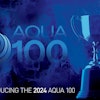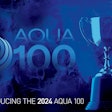The owners and operators of many pool and spa businesses may be missing out on a number of newly extended and expanded tax breaks under the false impressions that they had expired. Other tax breaks that may have been overlooked in the past have now been clarified thanks to the last-minute passage of a new tax law.
The passage of the Tax Relief and Health Care Act of 2006 in December extended a number of expired or expiring tax breaks. Covered were provisions such as sales tax deductions for people in states without income taxes, the tax deduction for college tuition, a tax credit for hiring welfare recipients and others facing difficulties finding jobs, tax credits for alternative-energy producers, and credits for purchases of solar energy equipment by homeowners and businesses.
All told, the extension of expiring and expired tax breaks, along with several new tax provisions, are expected to save taxpayers $38 billion over the next five years. While there is nothing earth-shattering in the new legislation, the fact that it was passed so late in the year has thrown both the Internal Revenue Service and tax professionals into a tizzy.
Every spa and pool professional should review these tax breaks, regardless of whether their tax returns have already been filed, whether they took advantage of the automatic extension of time to file those tax returns or whether they are in the process of preparing those income tax returns. Several provisions are likely to be of interest to industry business owners.
TAX CREDITS
The Work Opportunity (WO) and Welfare-to-Work (WTW) tax credits were originally created to provide incentives for employers to hire economically disadvantaged individuals. The new law retroactively renews both the WO and the WTW credits for 2006, combining them, with enhancements, into one credit for 2007.
The credits continue to target nine specific groups of economically challenged individuals. The combined credit in 2007 will simplify the necessary computations and, therefore, enhance its use, especially among smaller spa and pool professionals and businesses. The amount of the tax credit will, however, remain the same.
For most of the targeted groups, the credit is equal to 40 percent of qualified first-year wages (25 percent if employment is more than 120 hours but less than 400 hours). Qualified first year wages cannot exceed $6,000. That means a tax credit of as much as $2,400 per qualified individual in the first year of employment.
HEALTH SAVINGS ACCOUNTS
Many business owners have in recent years discovered the cost-effectiveness of so-called health savings accounts, or HSAs. Similar to an Individual Retirement Account (IRA), but earmarked for health-related expenses, the HSA has caught on among spa and pool professionals as an excellent, tax-favored fringe benefit for themselves as well as employees.
Contributions to HSAs are tax deductible, whether made by the individual or a business, and enable anyone with high-deductible health insurance to make pre-tax contributions equal to the lesser of the annual deductible or $2,700 for self-coverage ($5,460 for families) in 2006 to cover health care costs. Unlike an IRA, amounts paid or distributed out of an HSA used exclusively to pay qualified medical expenses are not includable in gross income.
As part of the new law, HSAs are now more attractive than ever. The newly eased rules are expected to have a major impact on employer-sponsored health care decisions. Unlike many of the extended provisions, the HSA enhancements have been made permanent with most taking effect for tax years beginning after 2006. All told, the extension of expiring and expired tax breaks, along with several new tax provisions, are expected to save taxpayers $38 billion over the next five years. Employees, even owners of their own spa or pool business, with a health flexible spending account (FSA) or a health reimbursement account (HRA) will be allowed to make a one-time transfer of the balance of their FSA or HRA to an HSA. The maximum amount that may be transferred, tax-free, is the lesser of the balance on the date of transfer or on Sept. 21, 2006. The transfer must be made before Jan. 1, 2012.
What's more, those professionals with tax-favored IRAs are allowed a one-time rollover of funds from their IRAs into an HSA. The change is designed to give those with IRAs quicker access to their funds for medical expenses, but it is also expected to spur interest in HSAs. The election to make the rollover is irrevocable and the new rules apply to tax years beginning after Dec. 31, 2006.
So-called Medical Savings Accounts (or Archer MSAs) also allow favorable tax treatment of money saved for medical expenses by certain taxpayers covered by highdeductible plans. Another provision in the tax law allows new contributions to this type of plan through Dec. 31, 2007.
ALTERNATIVE ENERGY
Many spa and pool professionals have benefited from a unique tax credit for homeowners. The 2005 Energy Act created a non-refundable personal tax credit of 30 percent of the cost of eligible solar water heaters, solar electricity equipment (photovoltaics) and fuel cell plants. The maximum credit is $2,000 per tax year for each category of solar equipment and $500 for each half kilowatt of capacity of fuel cell plants installed per tax year. The new law extends the credit for one year to property placed in service before Jan. 1, 2009.
FRIVOLOUS TAXES
The IRS has had its arsenal of weapons for fighting the "tax gap" strengthened and increased. Under congressional pressure to close that tax gap (the difference between taxes owed and the amount of taxes actually paid), the IRS will benefit from several provisions in the new tax law.
The IRS is, for instance, allowed to use the proceeds from its undercover operations to pay additional expenses incurred. A provision the IRS can use to self-fund its tax-cheat and taxfraud prevention efforts was due to expire at the end of 2006. It has now been extended through 2007. Plus, the IRS has been given the authority to share information with several other agencies, including state and municipal tax collectors, at least until the end of 2007.
It has also become more expensive to test the IRS's patience. The penalty for so-called "frivolous" tax return submissions has increased from $500 to $5,000, and expanded to cover to all taxpayers and all types of federal taxes. This increased penalty also applies to frivolous submissions for lien and levy collection due process, installment agreements, offers-in-compromise and taxpayer assistance orders.
ON A PERSONAL NOTE
The new tax legislation is not all business. In fact, only a few of its provisions will benefit the average spa or pool professional or are related to business. By far, the majority of the extended or resurrected provisions in this bill apply to individuals. Those provisions cover such things as:
• An "above-the-line" deduction for higher-education expenses;
• Deduction of state and local sales taxes;
• Above-the-line deduction for certain expenses of elementary and secondary schoolteachers;
• Extension of energy-efficient new homes credit;
• Extension of credit for residential energy-efficient property; and
• Alternative minimum tax credit relief for individuals.
AFTER THE FACT
Since the extenders bill passed after the IRS's deadline for printing 2006 tax year materials, they will not be revising the already printed tax forms. Instead, the IRS plans a "media blitz," in the IRS's own words, to alert taxpayers that the extenders are back and should not be overlooked in preparing 2006 tax returns.
The IRS has begun its program to publicize the tax law changes, explaining how to claim the retroactively resuscitated tax breaks. They are using a variety of media, including the IRS Web site (irs.gov). What's more, they are expected to issue a new Publication 553 (Highlights of 2006 Tax Changes) sometime in the first quarter of 2007.
Despite these efforts, however, most tax experts have predicted significant confusion on the part of both tax professionals and taxpayers. Fortunately, the tax laws now permit automatic extensions of time in which to file income tax returns — but not the taxes due.
Thus, unlike the IRS, spa and pool professionals — and their tax advisors — should have adequate time to digest the contents of the latest changes to our income tax laws. If the tax returns have been filed, our tax laws permit everyone to correct errors and omissions on that already-filed tax return.
Once a tax return is filed, the claim by an individual who filed Form 1040, 1040A or 1040EZ, is made on Form 1040X. A corporation that filed Form 1120 uses Form 1120X to include previously overlooked or neglected deductions and tax credits and to claim a refund. Generally, a spa and pool professional must file a claim for refund within three years of the time the return was filed.







































